I started the year out with Glitch Feminism by Legacy Russell, who ingeniously explores how the body can liberate itself in our digital age. My favorite kind of novel is one where a woman does something terrible, so I was thrilled to read Tampa by Alissa Nutting next.

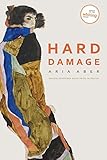
 I had moved to Los Angeles near the end of 2020, for reasons I still don’t quite understand. I believe I wanted to miss New York, the only place I’d ever lived, the only place I ever thought I could live, and a place that was no longer giving me much joy. With my day job remote, it felt like the right time to exile myself from Brooklyn (I had also been living at home with my parents, even before the pandemic). Moving to a new city during a pandemic likely caused me to read more books than usual this year. I buried myself in books! As the lonely do! I read The Inland Sea by Madeleine Watts on the concrete shore of the Los Angeles river, which suited the climate apocalypse at the center of this brilliant novel. Is there any water in L.A?, I wondered, reading about the narrator’s ancestor and the elusive body of water he sought in Australia. Then I read Hard Damage by Aria Aber and Interior Chinatown by Charles Yu—both sublime in their focus on belonging and the ills of the United States.
I had moved to Los Angeles near the end of 2020, for reasons I still don’t quite understand. I believe I wanted to miss New York, the only place I’d ever lived, the only place I ever thought I could live, and a place that was no longer giving me much joy. With my day job remote, it felt like the right time to exile myself from Brooklyn (I had also been living at home with my parents, even before the pandemic). Moving to a new city during a pandemic likely caused me to read more books than usual this year. I buried myself in books! As the lonely do! I read The Inland Sea by Madeleine Watts on the concrete shore of the Los Angeles river, which suited the climate apocalypse at the center of this brilliant novel. Is there any water in L.A?, I wondered, reading about the narrator’s ancestor and the elusive body of water he sought in Australia. Then I read Hard Damage by Aria Aber and Interior Chinatown by Charles Yu—both sublime in their focus on belonging and the ills of the United States.
In February, I reread a bible of mine, The Idiot by Elif Batuman. L.A. was in lockdown and I was hankering for the spectacularly dry humor you can find in every line of The Idiot. I read nothing else for a few weeks—instead, I seemed to begin living Selin’s life in The Idiot. The reasons were romantic in nature, and, like Selin, there was unfortunately no sex involved.


 At some point, I left the world of The Idiot. That Time of Year by Marie Ndiaye (translated by Jordan Stump) and Convenience Store Woman by Sayaka Murata (translated by Ginny Tapley Takemori) were phenomenal. As was the heartrending Open Water by Caleb Azumah Nelson. Then I ripped through Cassandra at the Wedding by Dorothy Baker. The voice in Baker’s novel is unlike any I’ve encountered—I was fully possessed by this novel for quite some time, and still.
At some point, I left the world of The Idiot. That Time of Year by Marie Ndiaye (translated by Jordan Stump) and Convenience Store Woman by Sayaka Murata (translated by Ginny Tapley Takemori) were phenomenal. As was the heartrending Open Water by Caleb Azumah Nelson. Then I ripped through Cassandra at the Wedding by Dorothy Baker. The voice in Baker’s novel is unlike any I’ve encountered—I was fully possessed by this novel for quite some time, and still.


 During these months I was re-reading my own novel during its various copyediting and proofreading stages. Before I turned in my manuscript for the final time, I wanted to make sure I made no grave research errors about bloodletting, cures for melancholy, and how physicians once placed leeches in vaginas to make women seem like virgins again. I also wanted to make sure I’d accurately portrayed the politics of Turkey during the ‘70s. Reading through my research on the time period where the left and right were at war with one another—all while the military supposedly held the peace overhead—led me to a few more books: the fantastic graphic novel Turkish Kaleidoscope by Jenny White and Istanbul, Istanbul by Burhan Sönmez (translated by Ümit Hussein). Istanbul, Istanbul is about four prisoners being held (and tortured) underground in Istanbul as they reminisce about life above. It’s a melancholic and metaphysical novel, a heartbreaking love letter to Istanbul amid ongoing political conflict. At this point, I had enough of Turkey’s history but I remain, for better or worse, fascinated by stories that reveal how linked the personal is to the political, so I followed Sönmez with Hades, Argentina by Daniel Loedel, which was spellbinding in its depiction of Argentina’s Dirty War. It proved to be an eerie companion to Istanbul, Istanbul—both summon the underworld and the emotional cost of confronting scar tissue with an intimate, unflinching eye.
During these months I was re-reading my own novel during its various copyediting and proofreading stages. Before I turned in my manuscript for the final time, I wanted to make sure I made no grave research errors about bloodletting, cures for melancholy, and how physicians once placed leeches in vaginas to make women seem like virgins again. I also wanted to make sure I’d accurately portrayed the politics of Turkey during the ‘70s. Reading through my research on the time period where the left and right were at war with one another—all while the military supposedly held the peace overhead—led me to a few more books: the fantastic graphic novel Turkish Kaleidoscope by Jenny White and Istanbul, Istanbul by Burhan Sönmez (translated by Ümit Hussein). Istanbul, Istanbul is about four prisoners being held (and tortured) underground in Istanbul as they reminisce about life above. It’s a melancholic and metaphysical novel, a heartbreaking love letter to Istanbul amid ongoing political conflict. At this point, I had enough of Turkey’s history but I remain, for better or worse, fascinated by stories that reveal how linked the personal is to the political, so I followed Sönmez with Hades, Argentina by Daniel Loedel, which was spellbinding in its depiction of Argentina’s Dirty War. It proved to be an eerie companion to Istanbul, Istanbul—both summon the underworld and the emotional cost of confronting scar tissue with an intimate, unflinching eye.

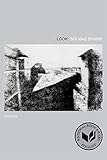
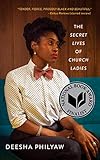 In spring I read Imagine Us, The Swarm by Muriel Leung, which was tender, barbed, and transformative all at once. Then I reread Look by Solmaz Sharif. Each time I read Sharif’s poetry, her work completely scoops me out anew. I also read The Secret Lives of Church Ladies by Deesha Philyaw, Detransition, Baby by Torrey Peters, and Liv Stratman’s Cheat Day. I believe Cheat Day, with its brilliant exploration of satiation and pleasure, influenced what happened to me next.
In spring I read Imagine Us, The Swarm by Muriel Leung, which was tender, barbed, and transformative all at once. Then I reread Look by Solmaz Sharif. Each time I read Sharif’s poetry, her work completely scoops me out anew. I also read The Secret Lives of Church Ladies by Deesha Philyaw, Detransition, Baby by Torrey Peters, and Liv Stratman’s Cheat Day. I believe Cheat Day, with its brilliant exploration of satiation and pleasure, influenced what happened to me next.

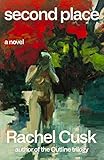 It was a very sensory reading period! I read A Touch of Jen by Beth Morgan (mostly while hungover, and it zinged me alive as if I had shot dextrose into my veins via IV) and Second Place by Rachel Cusk (mostly after having taken an edible, so I read each sentence very slowly while eating these delicious shortbread cookies from Trader Joes. I was pretty high, but shortbread is amazing because it takes a second for the butter to expand and melt in your mouth. The taste of butter is initially hidden, similar to the way the emotional geometry between Rachel Cusk’s characters is liminal until stripped naked with an overwhelmingly clarifying force. The experience was phenomenal: my attention to how these relationships between Cusks’s characters unfolded seemed to accentuate how the taste of shortbread expanded).
It was a very sensory reading period! I read A Touch of Jen by Beth Morgan (mostly while hungover, and it zinged me alive as if I had shot dextrose into my veins via IV) and Second Place by Rachel Cusk (mostly after having taken an edible, so I read each sentence very slowly while eating these delicious shortbread cookies from Trader Joes. I was pretty high, but shortbread is amazing because it takes a second for the butter to expand and melt in your mouth. The taste of butter is initially hidden, similar to the way the emotional geometry between Rachel Cusk’s characters is liminal until stripped naked with an overwhelmingly clarifying force. The experience was phenomenal: my attention to how these relationships between Cusks’s characters unfolded seemed to accentuate how the taste of shortbread expanded).


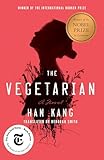 My bodily reading experience continued with novels about women transforming into animals or plants. There was Nightbitch by Rachel Yoder, Parakeet by Marie Helene-Bertino, and a favorite reread of mine, The Vegetarian by Han Kang. The deeply psychological blueprint that guides these characters’ transformations are fascinating to me and strike me as deeply spiritual and political in nature.
My bodily reading experience continued with novels about women transforming into animals or plants. There was Nightbitch by Rachel Yoder, Parakeet by Marie Helene-Bertino, and a favorite reread of mine, The Vegetarian by Han Kang. The deeply psychological blueprint that guides these characters’ transformations are fascinating to me and strike me as deeply spiritual and political in nature.

 In August, thanks to the vaccine, I was able to go to Istanbul to visit my grandmothers for the first time since 2018. I only had one book on me: Call Me Zebra by Azareen Van der Vliet Oloomi. It was fitting that the single novel I had was about carrying all of world literature within you. But I finished Call Me Zebra quickly—stupendous, audacious, delusional, the novel refused, once again, to separate the personal from the political—and, like Zebra, I needed more to read. The books at my grandmother’s house wouldn’t do (romance novels in Turkish, for the most part, which are amusing only for a few pages). I took the metro to Nisantasi and walked down the hill towards the Bosphorus until I reached Minoa Bookstore, which carries a wonderfully curated selection of Turkish and English books. A few years ago, I went to Minoa and asked a bookseller for “sad and alienated Turkish women writers who were leftists.” She smiled and said she was thrilled to hear this. She proceeded to send me home with the most sublime stack. This time around, I rooted about and found Noontime in Yenisehir by Sevgi Soysal in its original Turkish. I had read the English translation by Amy Spangler the year before, and I wanted to feel the space between the translations.
In August, thanks to the vaccine, I was able to go to Istanbul to visit my grandmothers for the first time since 2018. I only had one book on me: Call Me Zebra by Azareen Van der Vliet Oloomi. It was fitting that the single novel I had was about carrying all of world literature within you. But I finished Call Me Zebra quickly—stupendous, audacious, delusional, the novel refused, once again, to separate the personal from the political—and, like Zebra, I needed more to read. The books at my grandmother’s house wouldn’t do (romance novels in Turkish, for the most part, which are amusing only for a few pages). I took the metro to Nisantasi and walked down the hill towards the Bosphorus until I reached Minoa Bookstore, which carries a wonderfully curated selection of Turkish and English books. A few years ago, I went to Minoa and asked a bookseller for “sad and alienated Turkish women writers who were leftists.” She smiled and said she was thrilled to hear this. She proceeded to send me home with the most sublime stack. This time around, I rooted about and found Noontime in Yenisehir by Sevgi Soysal in its original Turkish. I had read the English translation by Amy Spangler the year before, and I wanted to feel the space between the translations.


 In the fall, I read Go Home, Ricky! by Gene Kwak, whose superb sentences have so much energy and heart. I reread Beloved by Toni Morrison, my favorite novel, and then I experienced a rapture of sorts reading Melissa Lozada-Oliva’s raw and obsessive Dreaming of You. I also loved Matrix by Lauren Groff. There’s an amazing passage about how the female orgasm is an expression of the four humors theory, one that is not shameful. I sadly didn’t unearth enough on the female orgasm in my research on the humors, so I really loved finding this here.
In the fall, I read Go Home, Ricky! by Gene Kwak, whose superb sentences have so much energy and heart. I reread Beloved by Toni Morrison, my favorite novel, and then I experienced a rapture of sorts reading Melissa Lozada-Oliva’s raw and obsessive Dreaming of You. I also loved Matrix by Lauren Groff. There’s an amazing passage about how the female orgasm is an expression of the four humors theory, one that is not shameful. I sadly didn’t unearth enough on the female orgasm in my research on the humors, so I really loved finding this here.
 Now I’m back home in Brooklyn again. Is my hungry reading period over? Was it inspired by solitude? I’m not sure. This past month I read Win Me Something by Kyle Lucia Wu, which explores loneliness and belonging with such a piercing eye. In this year of spending more time alone than ever before, Win Me Something gifted me a feeling that the best novels can: gratitude for a story told, when you needed a story most.
Now I’m back home in Brooklyn again. Is my hungry reading period over? Was it inspired by solitude? I’m not sure. This past month I read Win Me Something by Kyle Lucia Wu, which explores loneliness and belonging with such a piercing eye. In this year of spending more time alone than ever before, Win Me Something gifted me a feeling that the best novels can: gratitude for a story told, when you needed a story most.
More from A Year in Reading 2021 (opens in a new tab)
Don’t miss: A Year in Reading 2020, 2019, 2018, 2017, 2016, 2015, 2014, 2013, 2012, 2011, 2010, 2009, 2008, 2007, 2006, 2005









